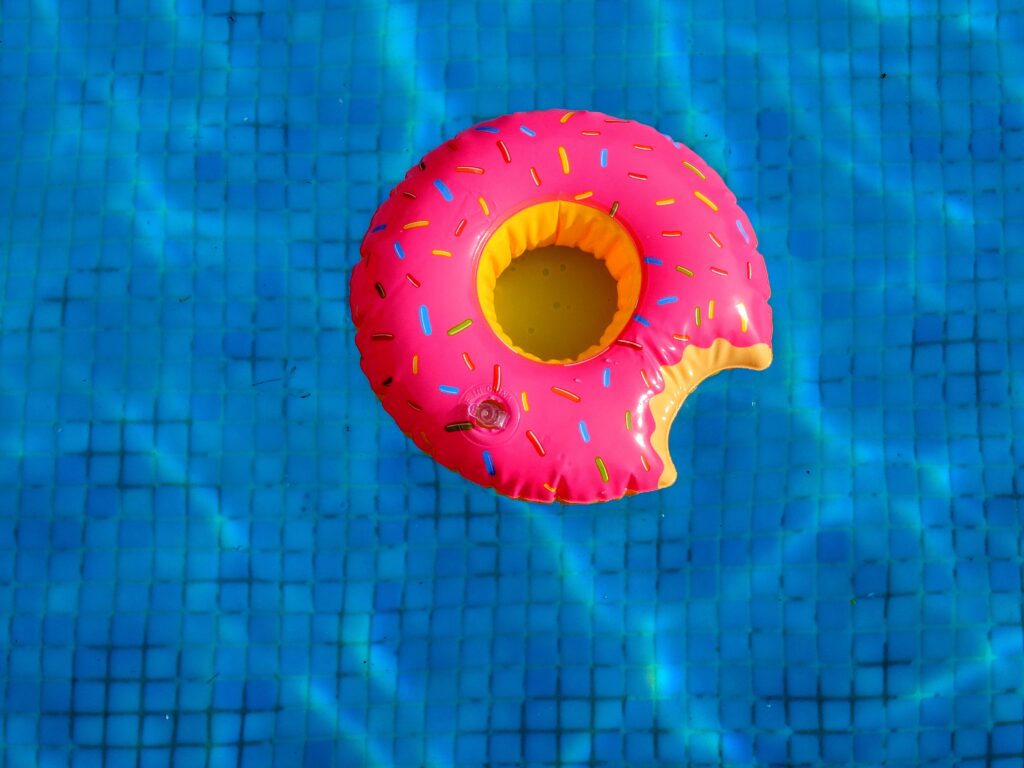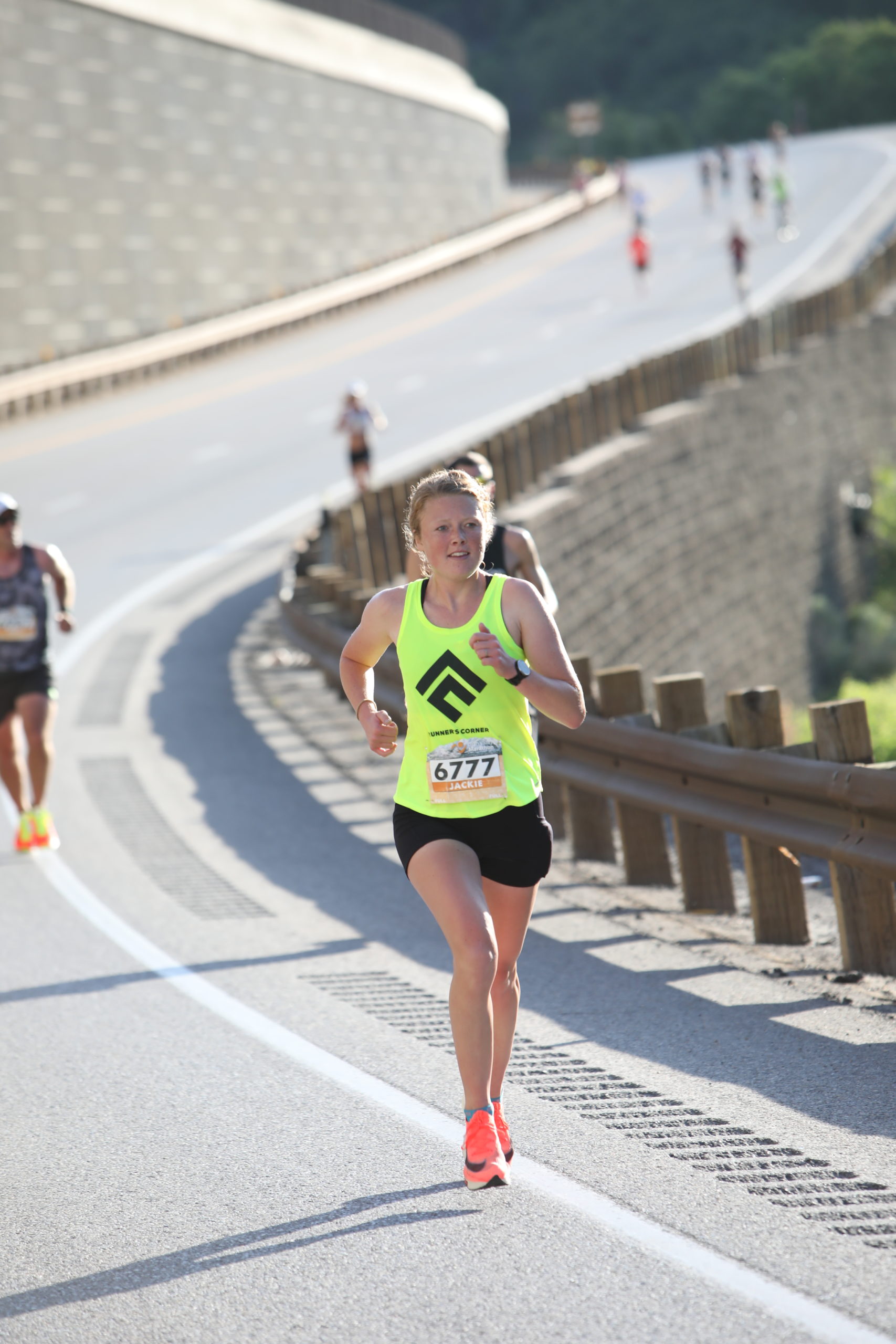Swimming Hunger Differences: Why?

As a young competitive swimmer, I remember all too well the feeling of extreme hunger that accompanied the completion of my workout. Even though I would start the morning with a substantial snack (large bagel), I would come home with no other thought than to make a hearty breakfast to satisfy my hunger. Contrast this with how I often feel after a morning run, and many days I am just not in the mood to eat for a while after finishing up. These swimming hunger differences stood out to me.
Do you relate?
Does swimming make us feel hungrier when compared to running or cycling?
Many researchers have studied this topic, hoping to find an answer as to why many athletes experience this sensation of increased hunger following a swim as compared to land-based endurance sports. Two main factors have been assessed, and we will discuss them both: first, the temperature of the water, and second, the release of hunger & fullness hormones in response to specific types of exercise.
Temperature Of The Water
Generally speaking, some studies have found a difference in the hunger response an athlete feels when exercising in hot climates versus cold climates. Typically an athlete will feel less hungry after competing in very hot temperatures, and be more likely to crave liquid-type fuel sources. Exercising in cold temperatures does not suppress appetite to the same degree and athletes are more likely to eat solid foods after working out in the cold as compared to completing an exercise session in the heat.
When applied directly to the temperature of water, some researchers have found that being immersed in cold water does seem to stimulate energy intake following an exercise session. One study compared how much food an athlete ate after being immersed in cold water versus neutral-temperature water following an exercise session. The athletes who had been immersed in cold water ate more than the athletes who were in the warmer water.
Levels of Hunger and Fullness Hormones
The body’s main hormone to tell us we are hungry is ghrelin. Its main fullness hormone is leptin. One study monitored the way swimming affected the production of these hormones in untrained swimmers. All athletes started with a standardized snack based on their personal energy needs, completed the same workout at a moderate intensity, and then ate a meal with no guidelines on what or how much of each food they should consume. Ghrelin levels were measured before exercise, immediately after exercise, and once every hour for the next 6 hours.
Most of the swimmers in the study had lower perceived ratings of hunger during and immediately after swimming. As time passed from the completion of their exercise session, perceived hunger increased. Measured ghrelin levels confirmed these findings and followed the same trend, though no statistically significant relationship was determined between energy intake and ghrelin levels.
This pattern of delayed hunger following an exercise session is true for all forms of endurance exercise: running, biking, or swimming. Athletes may notice this trend more profoundly following exercise sessions where a higher level of effort and intensity was given.
So while the findings of this study are intriguing, they do not explain why many athletes report feeling more hungry after swimming as compared to running or cycling.
Possible Explanations and Further Points of Research
Other considerations for hunger levels felt after swimming include the effect of zero-impact training as well as how well-trained an athlete is at swimming.
As an athlete and dietitian, I have observed the effect of impact on what kinds of foods one can tolerate while performing different exercises. We know that jostling can influence the degree to which an athlete experiences GI distress during exercise. Runners typically cannot handle the same volume or kinds of fuel sources that a biker or hiker can. Swimming is a zero-impact sport and the stomach/GI system will likely be more cooperative in comparison to other activities. This could be a potential explanation for why an athlete is more likely to feel their hunger cues more after swimming versus running or cycling.
We also know that when comparing a trained athlete to an untrained athlete, the amount of energy used during training will change. The more familiar an athlete is with a specific type of training, the more efficient their body becomes at doing that particular exercise. That efficiency makes it so that a well-trained athlete will burn less calories than an untrained athlete performing the same activity.
For many triathletes, swimming can be the least favorite of the three events, and one that is most unfamiliar. While it may feel very comfortable and natural to go on a long run or couple hour bike, going for a long swim could be more daunting and difficult. This uncomfortable feeling can increase the overall energy expenditure for swimming specifically. Obviously this hypothesis would not apply to every triathlete, and would need further research to be validated.
Wrapping It Up
There are a variety of possible explanations for why an athlete may feel more hungry after swimming compared to running or cycling. Perhaps it’s the cold water, lack of impact, or the lack of familiarity an athlete has with swimming itself.
Whatever the case, I recommend athletes trust their hunger cues. If you feel more hungry after a swim than you do for a bike or a run, eat a bigger meal. More than likely this is an accurate signal from your body that you need more fuel. Trusting & responding to those cues on a consistent basis is the best thing an athlete can do. This will help them meet their energy needs intuitively.
References
- King JA, Wasse LK, Stensel DJ. The acute effects of swimming on appetite, food intake, and plasma acylated ghrelin. J Obes. 2011;2011:351628. doi: 10.1155/2011/351628. Epub 2010 Oct 3. PMID: 20953411; PMCID: PMC2952805.
- White LJ, Dressendorfer RH, Holland E, McCoy SC, Ferguson MA. Increased caloric intake soon after exercise in cold water. Int J Sport Nutr Exerc Metab. 2005 Feb;15(1):38-47. doi: 10.1123/ijsnem.15.1.38. PMID: 15902988.
- Halse RE, Wallman KE, Guelfi KJ. Postexercise water immersion increases short-term food intake in trained men. Med Sci Sports Exerc. 2011 Apr;43(4):632-8. doi: 10.1249/MSS.0b013e3181f55d2e. PMID: 20798665.
- Charlot K, Faure C, Antoine-Jonville S. Influence of Hot and Cold Environments on the Regulation of Energy Balance Following a Single Exercise Session: A Mini-Review. Nutrients. 2017 Jun 10;9(6):592. doi: 10.3390/nu9060592. PMID: 28604591; PMCID: PMC5490571.
- Fico BG, Alkatan M, Tanaka H. No Changes in Appetite-Related Hormones Following Swimming and Cycling Exercise Interventions in Adults with Obesity. Int J Exerc Sci. 2020 Dec 1;13(2):1819-1825. PMID: 33414868; PMCID: PMC7745908.
Westerterp, K. Control of energy expenditure in humans. Eur J Clin Nutr 71, 340–344 (2017). https://doi.org/10.1038/ejcn.2016.237
Advertisement

Jackie Hendrickson RD, MPH is a registered dietitian with a Masters Degree in public health nutrition from Utah State University. Jackie is the owner of Enduura Nutrition and loves coaching her athletes to their athletic potential through sustainable training & nutrition principles. She is an avid road & trail marathoner with a background in collegiate track, cross country, and competitive swimming. Jackie and her husband, Adam, were teammates in college and continue to pursue their running goals together. They live in beautiful Ogden, Utah with their 2 year old son, Lincoln.








